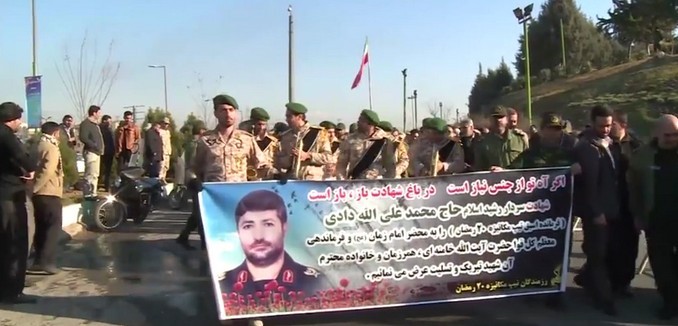Hezbollah’s increased activity in the Syrian Golan Heights is a sign of an Iranian effort to “militarily encircle” Israel, Phillip Smyth wrote in an analysis for Foreign Policy on Wednesday.
While the Jan. 18 attack represents another saga in the long-running war between Israel and Hezbollah, it also underlines a strategic power shift between Iran and the Assad regime. Hezbollah’s success in opening a new front in the Golan has been a major accomplishment. With greater access to the Golan — or at least sections of it — Hezbollah has a new, non-Lebanese zone it can utilize to target Israel. This may have been Hezbollah’s primary goal all along. Long before Syria’s brutal civil war, it was Hafez and Bashar al-Assad who used Lebanon, and often Hezbollah, as a front to exact their military goals against Israel. Now the tables have turned, and it is Hezbollah and its masters in Tehran who can choose areas of Syria to use against Israel.
For Iran and its Hezbollah proxy, this success is a step in a process to militarily encircle the Israelis. Tehran is currently re-solidifying its relationship with Hamas in Gaza, addressing a push for a southern front against Jerusalem. If needed, the Golan’s near-anarchic conditions also provide Hezbollah with plausible deniability (in the odd case it wishes to deny it had a role in attacking the Jewish state). Geographically, the domination of the Golan potentially creates a Hezbollah-dominated zone stretching from the Mediterranean to the Jordanian border.
Smyth also observed that Hezbollah felt the need to respond with a cross-border attack that killed two Israeli soldiers so as not to appear that “its hands are tied fighting Sunni elements in Syria.”
He also noted that Israel is not alone in facing this threat from Iran:
But this development is not simply limited to Israel. With the Houthi victory in Yemen, increased tensions in Bahrain, and Iran’s numerous Shiite militia proxies projecting their power in Iraq, Saudi Arabia is also facing a more fractious but similar predicament to the Israelis in Tehran’s new geographic arc of influence.
In Is ISIS Distracting Us from a More Serious Iranian Threat?, which was published in the November 2014 issue of The Tower Magazine, David Daoud warned against forgetting about Iranian regional ambitions:
Dangerous as it is, however, the level of fear and panic over ISIS is not yet completely justified. And it is causing the international community to lose perspective and overlook a far more formidable foe and agent of regional and international instability: Iran. ISIS are murderers that bask in attention and fear; “a group of adventurers with a very aggressive ideology,” as Henry Kissinger has called them. Iran is a sober and calculating foe with global reach; the discipline of its loyal cadres and its quest for nuclear weapons make ISIS pale in comparison. In the inevitable fight between the West and ISIS, Iran must not be allowed to be the ultimate victor.
[Photo: News First / YouTube ]




